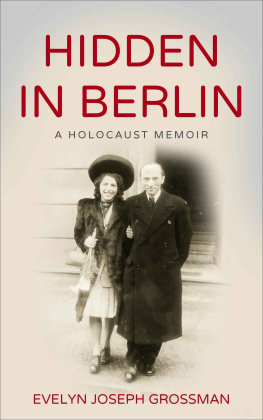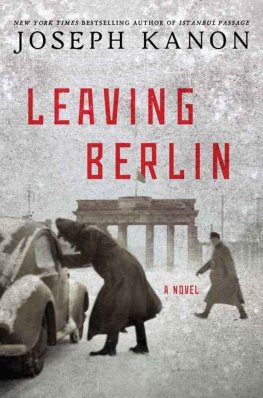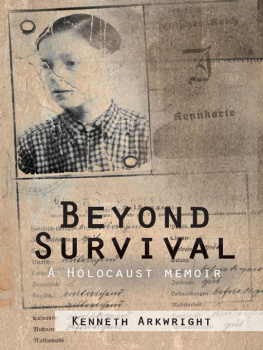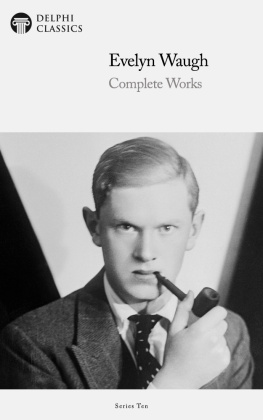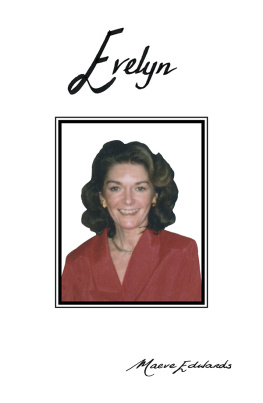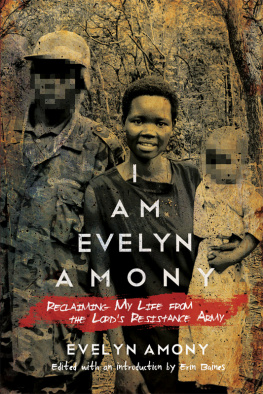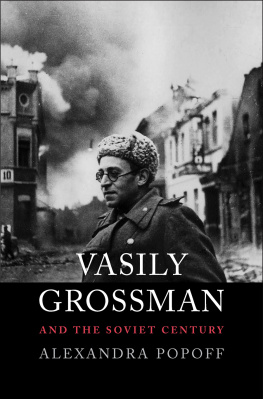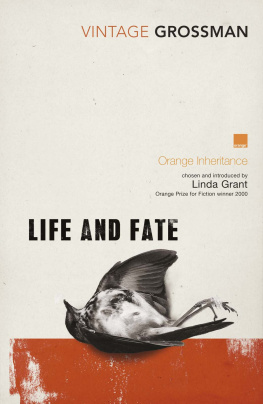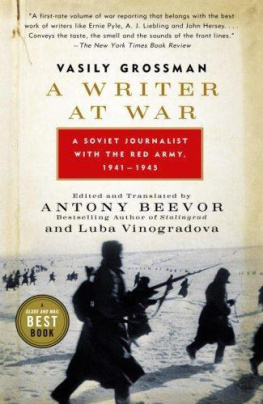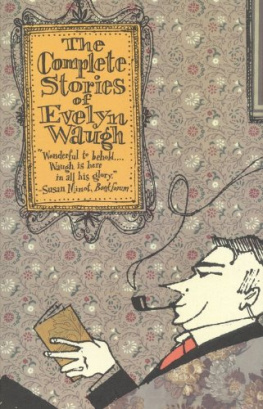Evelyn Joseph Grossman - Hidden in Berlin: A Holocaust Memoir
Here you can read online Evelyn Joseph Grossman - Hidden in Berlin: A Holocaust Memoir full text of the book (entire story) in english for free. Download pdf and epub, get meaning, cover and reviews about this ebook. year: 2020, publisher: Amsterdam Publishers, genre: Non-fiction. Description of the work, (preface) as well as reviews are available. Best literature library LitArk.com created for fans of good reading and offers a wide selection of genres:
Romance novel
Science fiction
Adventure
Detective
Science
History
Home and family
Prose
Art
Politics
Computer
Non-fiction
Religion
Business
Children
Humor
Choose a favorite category and find really read worthwhile books. Enjoy immersion in the world of imagination, feel the emotions of the characters or learn something new for yourself, make an fascinating discovery.
- Book:Hidden in Berlin: A Holocaust Memoir
- Author:
- Publisher:Amsterdam Publishers
- Genre:
- Year:2020
- Rating:3 / 5
- Favourites:Add to favourites
- Your mark:
- 60
- 1
- 2
- 3
- 4
- 5
Hidden in Berlin: A Holocaust Memoir: summary, description and annotation
We offer to read an annotation, description, summary or preface (depends on what the author of the book "Hidden in Berlin: A Holocaust Memoir" wrote himself). If you haven't found the necessary information about the book — write in the comments, we will try to find it.
Hidden in Berlin: A Holocaust Memoir — read online for free the complete book (whole text) full work
Below is the text of the book, divided by pages. System saving the place of the last page read, allows you to conveniently read the book "Hidden in Berlin: A Holocaust Memoir" online for free, without having to search again every time where you left off. Put a bookmark, and you can go to the page where you finished reading at any time.
Font size:
Interval:
Bookmark:


ISBN: 9789493056800 (ebook)
ISBN: 9789493056794 (paperback)
ISBN: 9789493231108 (hardcover)
Cover: Part of Wedding Photo - Elisabeth and Ernst Joseph, March 29, 1947
Copyright 2020 Evelyn Joseph Grossman
Publisher: Amsterdam Publishers
info@amsterdampublishers.com
Holocaust Survivor True Stories WWII Book 6
All Rights Reserved. No part of this publication may be reproduced or transmitted in any form or by any means, electronic or mechanical, including photocopy, recording or any other information storage and retrieval system, without prior permission in writing from the publisher.
For my grandchildren, Josie, Knox, and James
In this story Evelyn Grossman writes a very readable, thoroughly researched and emotionally gripping account of the experience of her parents and their families from 1932 until after the war. Some were taken from their homes in Berlin to be murdered. Others survived, hidden by angel Germans who risked their lives. As I read I knew what it was like to live every day always terribly afraid that I too would be caught and taken away to die. Be prepared. You will be unable to put this book down until youve finished it.
Rabbi Robert Freedman, ordained as both a cantor and a rabbi, has served congregations in Princeton, NJ, Manchester, VT and Philadelphia, PA.

* * *
Behind the simple title lies a complex, multigenerational story set in Nazi Germany and in the United States. At the center are Lilo and Ernst, the authors parents. Through grit, courage and luck, aided by people from all walks of life, they, and Ernsts mother, Betty, survived. It is a story of love and determination and a story of heartbreaking loss and breathtaking miracles. It is a story of an unending search to discover the fate of those who did not survive and those who faded into the background after the war. It is a story about gratitude and rebirth - where the past lives in the present and the present in the past.
The narrative is interwoven with connections and trains of thought, which lead the reader from specific events to the larger context in which they occur. When in September 1942, Lilo and her brother, Hans Martin find the door to the family apartment sealed and their parents in Gestapo custody, the narrative pivots to the Wannsee Conference, Eichmanns role in it, and then to Lilos reactions as she is glued to the TV in her apartment in New Jersey watching the Trial in Jerusalem in 1966. Similarly, when Lilo receives a letter from her half sister who was protected because of her Mischling status, the reader is lead to a reflection of what it means to be a Jew and from there to the Rosenstrasse Protest in 1943. And Lilos first encounter with a portrait of Theodore Herzl leads to a discussion of Zionism and from there to Joachim Prinz, a courageous Rabbi in Berlin who emigrated to the US and spoke at the MLK March in 1963. Questions about religion, race, cultural identity and shared history are raised in the context of the Nazi laws about Mischlings.
The zigzag of the narrative, the extended time frame from Nazi Germany to contemporary America, and the inclusion of several generations provide a rich and unique perspective on a tragic historical period.
Dr. Eva Gossman, retired Associate Dean of the College, Princeton University and author of Good Beyond Evil.
Im writing you this letter, but I dont know if you will receive it. I hope so... A long time has passed since we saw each other. More than 16 years. The time here for us has passed very quickly, too quickly... Forgive me my long silence... let us be old friends again, as we were before. You have no idea how happy that would make me. If there is something you want that I can help with, please let me know.
My father wrote those words in November 1964 to Oscar Materne, a good friend in Germany during the war years. A few weeks later, his widow replied. Her husband had died months ago. She was living quite modestly on a pension, and would welcome a small food package.
I remember sitting at the kitchen table in our house in Ewing Township, New Jersey, a suburb of Trenton, watching my father as he wrote letters on the clunky, old, black manual typewriter and filled cardboard boxes with cooking oil, coffee, tea, sugar, cocoa, and cigarettes. I was a teenager, old enough to know the outline of how my father had survived the Holocaust, but very few details.
Oscar Materne had been the connector. He was the one who found a German couple willing to shelter my father and grandparents. For 27 months, they hid in a small room in the center of Berlin. That much I knew from conversations in the house, but very little else.
There was never a time when I learned about the Holocaust. The past always had a place in our house, and bits of the story came out sporadically.
My father and mother grew up in pre-war Berlin, in Jewish homes with a strong German identity. Both families were registered by the government as part of the Jdische Gemeinde, the Jewish Community, as were all Jews, regardless of any connection to a synagogue. The Joseph family, my fathers side, celebrated Passover and Chanukah, but their cultural identity rested on their love of the German writers, Goethe and Schiller, and Austrian composers, Haydn and Schubert. The Jacoby family, my mothers side, came to the synagogue on Rosh Hashanah and Yom Kippur, and rarely, if at all, the rest of the year. Bruno Jacoby, my maternal grandfather, served with distinction during the Great War, a past he held on to with pride and, in his opinion, one that confirmed his loyalty to Germany.
My fathers story and my mothers intersected at times, but for the most part, they remained distinct until their marriage after the war. My mother spoke of a childhood filled with dance classes, biking with her brother, and swimming in a public pool with artificial waves. She dreamed of becoming a ballerina. In those years during the Weimar Republic, there was no antisemitism. At least, that was the way she remembered it.
Perhaps there was no overt persecution in Charlottenburg, a progressive and upscale area in the western section of Berlin where the Jacoby family lived. Nonetheless, antisemitism was pervasive in Germany in the 1920s, with harassment in the universities, discrimination at work, and attacks on Jews in newspapers, flyers, and posters.
When the Gestapo came and marched my maternal grandparents away, it no longer mattered that Bruno Jacoby had been awarded the Iron Cross, first class.
My father was eight years older than my mother, a difference great enough that he was able to complete one year at the university, while my mother had to leave school at the age of fourteen.
When the Nazis closed the door of education, my father began working in the Central Market Hall with my grandfather. Leopold Joseph, my paternal grandfather, owned a business importing canned fish and selling to local merchants in Berlin. It was in the marketplace where my father met Oscar Materne.
I grew up in the 1950s, in a home with deep love and shadows of earlier days filled with pain. I am the daughter of German-Jewish parents who wanted to assimilate into their new country, even if they couldnt lose their accents.
Font size:
Interval:
Bookmark:
Similar books «Hidden in Berlin: A Holocaust Memoir»
Look at similar books to Hidden in Berlin: A Holocaust Memoir. We have selected literature similar in name and meaning in the hope of providing readers with more options to find new, interesting, not yet read works.
Discussion, reviews of the book Hidden in Berlin: A Holocaust Memoir and just readers' own opinions. Leave your comments, write what you think about the work, its meaning or the main characters. Specify what exactly you liked and what you didn't like, and why you think so.

